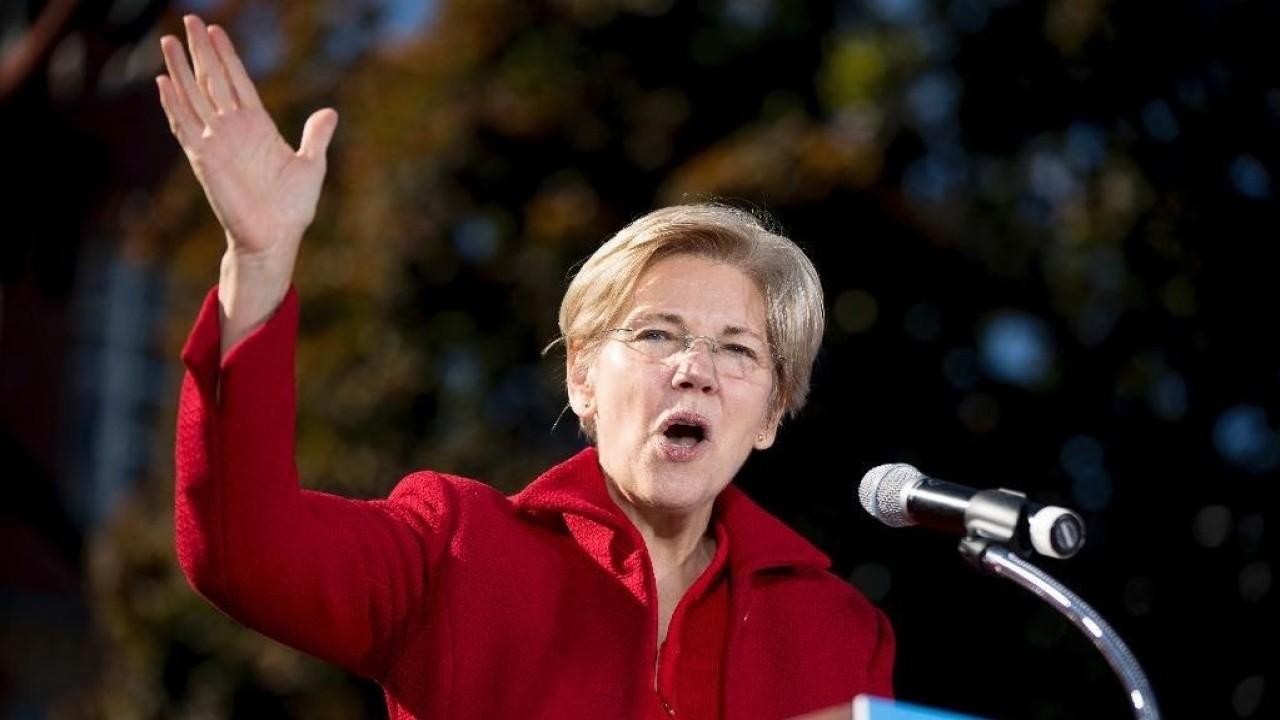Warren skewers Bloomberg for blaming financial crisis on end of ‘redlining’
Warren suggested Bloomberg’s past comments should preclude him from becoming the Democratic nominee
Elizabeth Warren skewered fellow Democratic presidential candidate Michael Bloomberg over his recently resurfaced comments from 2008 in which he suggested that ending a discriminatory policy known as “redlining” was to blame for the financial crisis.
Redlining refers to the long-stand practice in which banks cut off certain neighborhoods, and potential homebuyers, from mortgage lending opportunities — often discriminating against predominantly black neighborhoods.
“What the mayor is really saying is that this crisis could have been averted if the banks had just been able to discriminate against black and brown people more,” Warren said during an interview on MSNBC.
The three-time New York City mayor made the comments, first reported by the Associated Press, at a forum hosted by Georgetown University in September 2008 at the height of the economic meltdown.
BLOOMBERG, IN 2008, BLAMED END OF ‘REDLINING’ FOR TRIGGERING FINANCIAL CRISIS
“It probably all started back when there was a lot of pressure on banks to make loans to everyone,” Bloomberg said at the time. “Redlining, if you remember was the term, where banks took whole neighborhoods and said: ‘People in these neighborhoods are poor, they’re not going to be able to pay off their mortgages, tell your salesman don’t go into those areas.’”
He continued: “And then Congress got involved, local elected officials as well, and said, ‘Oh, that’s not fair, these people should be able to get credit.’ And once you started pushing in that direction, banks started making more and more loans where the credit of the person buying the house wasn’t as good as you would like.”
TRUMP WOULD RATHER RUN AGAINST BLOOMBERG THAN SANDERS IN 2020
The Massachusetts senator -- seeking to kickstart her campaign after a lackluster fourth-place finish in the New Hampshire primary -- suggested Bloomberg’s past comments should preclude him from becoming the Democratic nominee.
“Let's be clear: That would not have averted the crisis,” she said. “And anybody who thinks that the banks should have been allowed to be more racist should not be the leader of our party.”
During the worst economic recession since the Great Depression, unemployment surged past 10 percent, and trillions of dollars in market value was wiped out. Tens of thousands of Americans lost their homes to foreclosure, including more than 800,000 in 2008 alone, according to RealtyTrac data.
SANDERS, BUTTIGIEG ARE WINNING THE 2020 CAMPAIGN FUNDRAISING RACE
The U.S. government responded to the collapse by pumping in $1.5 trillion in stimulus over a five-year period to help keep leading financial institutions afloat and maintain liquidity in financial markets. The Federal Reserve slashed interest rates to nearly zero to encourage spending and went on a bond-buying spree that more than quadrupled the size of its balance sheet.
"Mike’s saying that something bad - the financial crisis - followed something good, which is the fight against redlining he was part of as Mayor,” Bloomberg’s campaign spokesperson Stu Loeser said in a statement.
Bloomberg won’t officially be competing in the Democratic primary until Super Tuesday on March 3, when 14 delegate-rich states go to cast their ballots. Candidates need 1,991 delegates to become the Democratic nominee; a combined 1,344, or about one-third of the total, will be allotted on Super Tuesday alone.
CLICK HERE TO READ MORE ON FOX BUSINESS
One of the richest men alive, Bloomberg is betting that constant exposure on the airwaves -- he’s spent more than $344 million already -- can clinch him the nomination, despite his unorthodox strategy to skip Iowa, New Hampshire, Nevada and South Carolina.
The investment may be paying off: In a national average of polls by RealClearPolitics, Bloomberg has surged to third place, behind Vermont Sen. Bernie Sanders and former Vice President Joe Biden. Warren is in fourth.




















